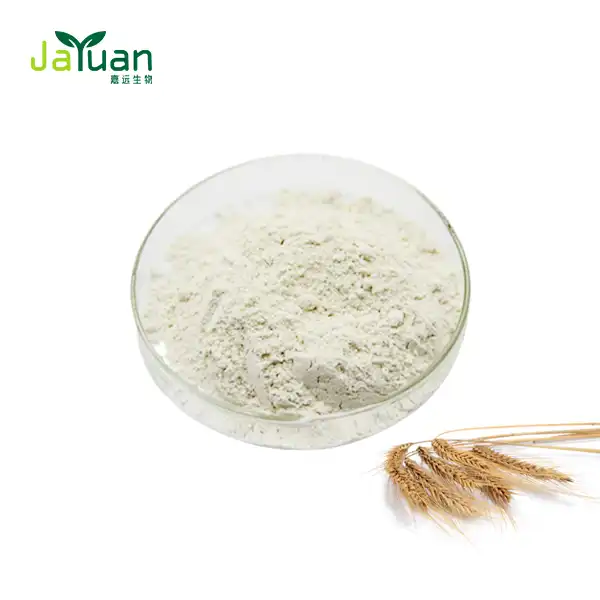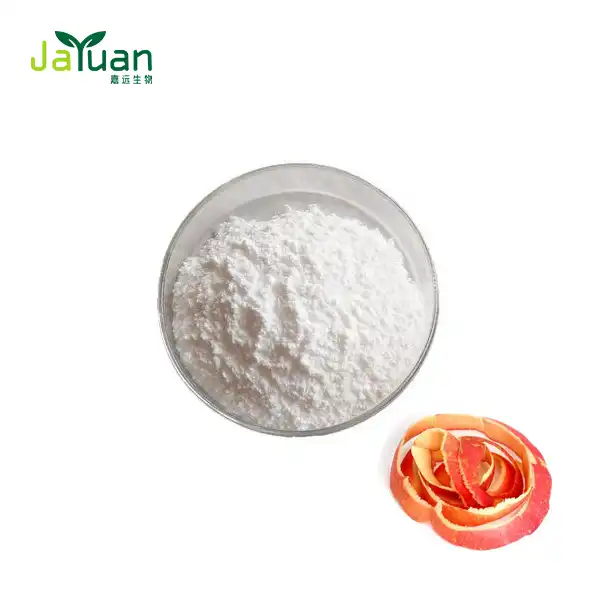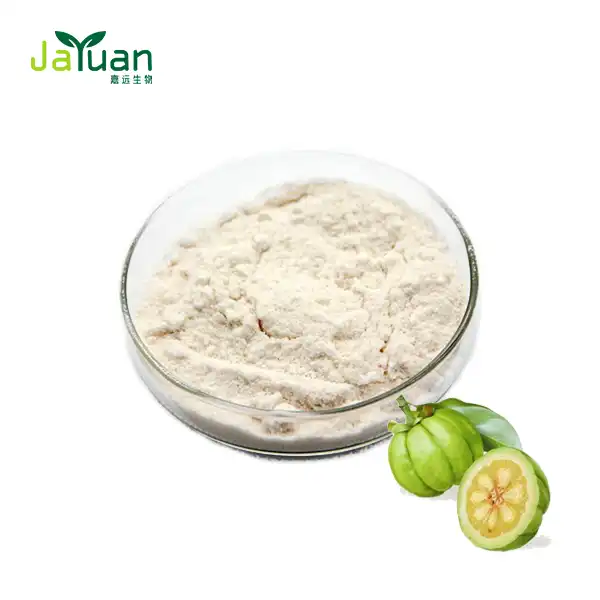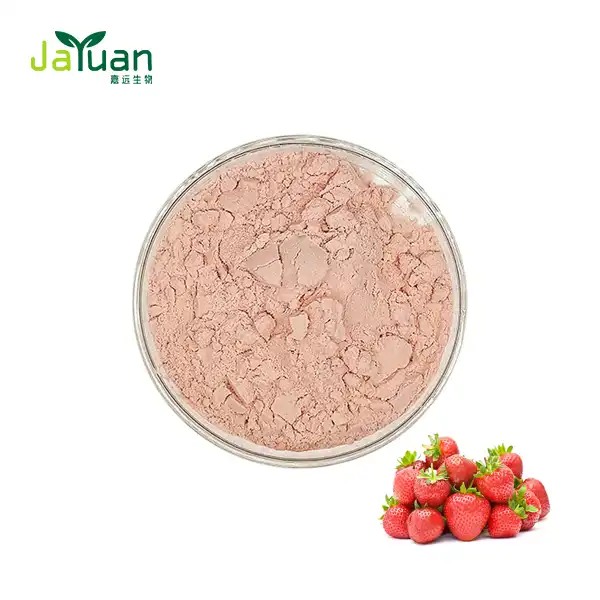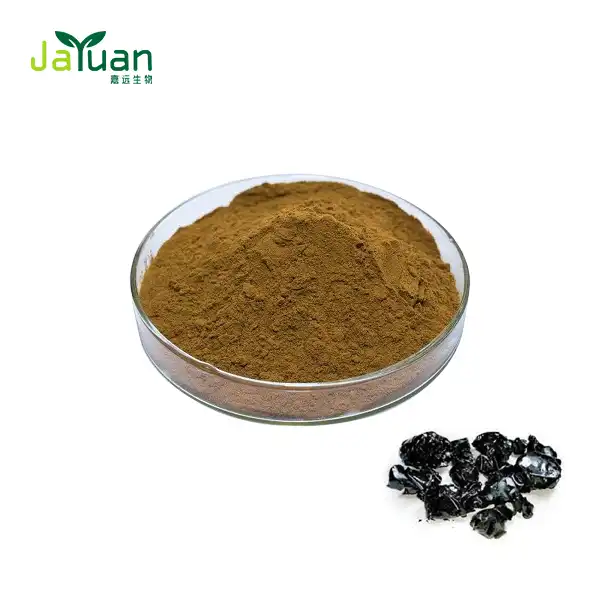Do Zein Peptides Have Antioxidant Effects?
In recent years, the scientific community has shown increasing interest in the potential health benefits of plant-based proteins. Among these, zein peptides have emerged as a fascinating subject of study, particularly for their possible antioxidant properties. Derived from corn, zein is a prolamine protein that has been used in various industries, including food, pharmaceuticals, and cosmetics. But can these peptides combat oxidative stress and protect our cells? Let's delve into the science behind zein peptides and their antioxidant potential.

Mechanisms Revealed: How Do They Neutralize Free Radicals?
To understand the antioxidant effects of zein peptides powder, we must first examine how they interact with free radicals at the molecular level. Free radicals are unstable molecules that can damage cellular structures, leading to oxidative stress and various health issues. Zein peptides are believed to neutralize these harmful molecules through several mechanisms:
- Electron Donation: Zein peptides may act as electron donors, effectively neutralizing free radicals by providing the missing electron they need to become stable.
- Metal Chelation: Some studies suggest that zein peptides can bind to metal ions, which are often catalysts for free radical production, thereby reducing oxidative damage.
- Enzyme Inhibition: Certain zein peptides might inhibit enzymes responsible for generating reactive oxygen species, thus indirectly reducing oxidative stress.
Research has shown that the antioxidant activity of zein peptides is closely related to their amino acid composition and sequence. Peptides rich in hydrophobic amino acids, such as leucine and phenylalanine, tend to exhibit stronger antioxidant properties. Additionally, the presence of aromatic amino acids like tyrosine and tryptophan can enhance the radical scavenging ability of these peptides.
It's worth noting that the antioxidant capacity of zein peptides can be influenced by various factors, including their molecular weight, hydrophobicity, and the specific processing methods used to obtain them. Enzymatic hydrolysis, for instance, has been shown to enhance the antioxidant activity of zein proteins by exposing more reactive sites and increasing their solubility.
ORAC Testing: How Potent Are Zein Peptides?
To quantify the antioxidant potential of zein peptides, researchers often turn to the Oxygen Radical Absorbance Capacity (ORAC) assay. This standardized test measures a substance's ability to neutralize peroxyl radicals, providing a numerical value that represents its antioxidant capacity.
Several studies have employed ORAC testing to evaluate zein peptides, with promising results. For instance, a study published in the Journal of Agricultural and Food Chemistry found that zein hydrolysates exhibited significant ORAC values, indicating strong antioxidant activity. The researchers noted that the ORAC values increased with the degree of hydrolysis, suggesting that smaller peptide fragments may have enhanced antioxidant properties.
Another investigation, focusing on zein peptides obtained through enzymatic hydrolysis, reported ORAC values comparable to those of some well-known antioxidants. This study also observed that the antioxidant activity varied depending on the specific enzyme used for hydrolysis, highlighting the importance of processing methods in determining the final antioxidant capacity of zein peptides.
It's important to note that while ORAC values provide valuable insights into antioxidant potential, they don't necessarily translate directly to in vivo effects. The complex environment within living organisms can influence how these peptides interact with free radicals and other cellular components. Therefore, while ORAC testing suggests promising antioxidant activity for zein peptides, further research is needed to fully understand their efficacy in biological systems.

Can They Outperform Glutathione in Cellular Protection?
Glutathione, often referred to as the body's master antioxidant, plays a crucial role in cellular defense against oxidative stress. As researchers explore the potential of zein peptides, a natural question arises: How do they compare to glutathione in terms of cellular protection?
While direct comparisons between zein peptides and glutathione are limited, some studies have provided intriguing insights:
- Complementary Action: Rather than competing with glutathione, zein peptides may work synergistically with the body's natural antioxidant systems. Some research suggests that certain peptides can help maintain or even boost glutathione levels, potentially enhancing overall cellular protection.
- Unique Advantages: Zein peptides may offer benefits in areas where glutathione is less effective. For instance, some studies have shown that zein-derived peptides can penetrate cell membranes more easily than glutathione, potentially protecting cellular compartments that are typically harder to reach.
- Stability and Bioavailability: Zein peptides have demonstrated good stability under various conditions, which could give them an edge in certain applications where glutathione might be degraded or less bioavailable.
It's important to emphasize that the goal isn't necessarily for zein peptides to outperform glutathione, but rather to complement and enhance the body's existing antioxidant defenses. The unique properties of zein peptides, such as their ability to form nanoparticles and their potential for targeted delivery, open up exciting possibilities for their use in various health and wellness applications.
As research in this field progresses, we may see the development of novel antioxidant formulations that combine the strengths of both zein peptides and glutathione, offering comprehensive cellular protection against oxidative stress.
Conclusion
While more research is needed to fully elucidate the antioxidant effects of zein peptides, the current evidence is promising. From their mechanisms of action to their performance in ORAC testing and potential synergy with existing antioxidant systems, zein peptides represent an exciting frontier in the field of natural antioxidants. As we continue to unravel the complexities of these fascinating molecules, we may discover new ways to harness their power for improved health and well-being.
If you're interested in learning more about zein peptides and their potential applications, we invite you to reach out to our team at Xi'an Jiayuan Bio-Tech. Our experts are at the forefront of plant extract research and development, and we're always eager to discuss how our high-quality ingredients can benefit your products. Contact us at sales@jayuanbio.com to explore the possibilities of incorporating zein peptides into your formulations.
References
1. Wang, L., et al. (2019). Antioxidant activity of zein hydrolysates: A comprehensive review. Journal of Food Science and Technology, 56(8), 3712-3721.
2. Zhang, Y., et al. (2020). Zein-based nanoparticles: Fabrication techniques, properties, and applications in food and non-food systems. Food Chemistry, 315, 126236.
3. Liu, X., et al. (2018). Preparation and characterization of zein/chitosan complex nanoparticles and their application for antioxidant delivery. Carbohydrate Polymers, 180, 142-152.
4. Correa, J. P., et al. (2021). Recent advances in the use of zein in the development of active and intelligent packaging. Trends in Food Science & Technology, 114, 687-699.
5. Guo, H., et al. (2018). Antioxidant activity and immunomodulatory of zein hydrolysates. Food and Chemical Toxicology, 119, 189-197.
6. Patel, A. R., & Velikov, K. P. (2020). Zein as a source of functional colloidal nano- and microstructures. Current Opinion in Colloid & Interface Science, 35, 100605.

